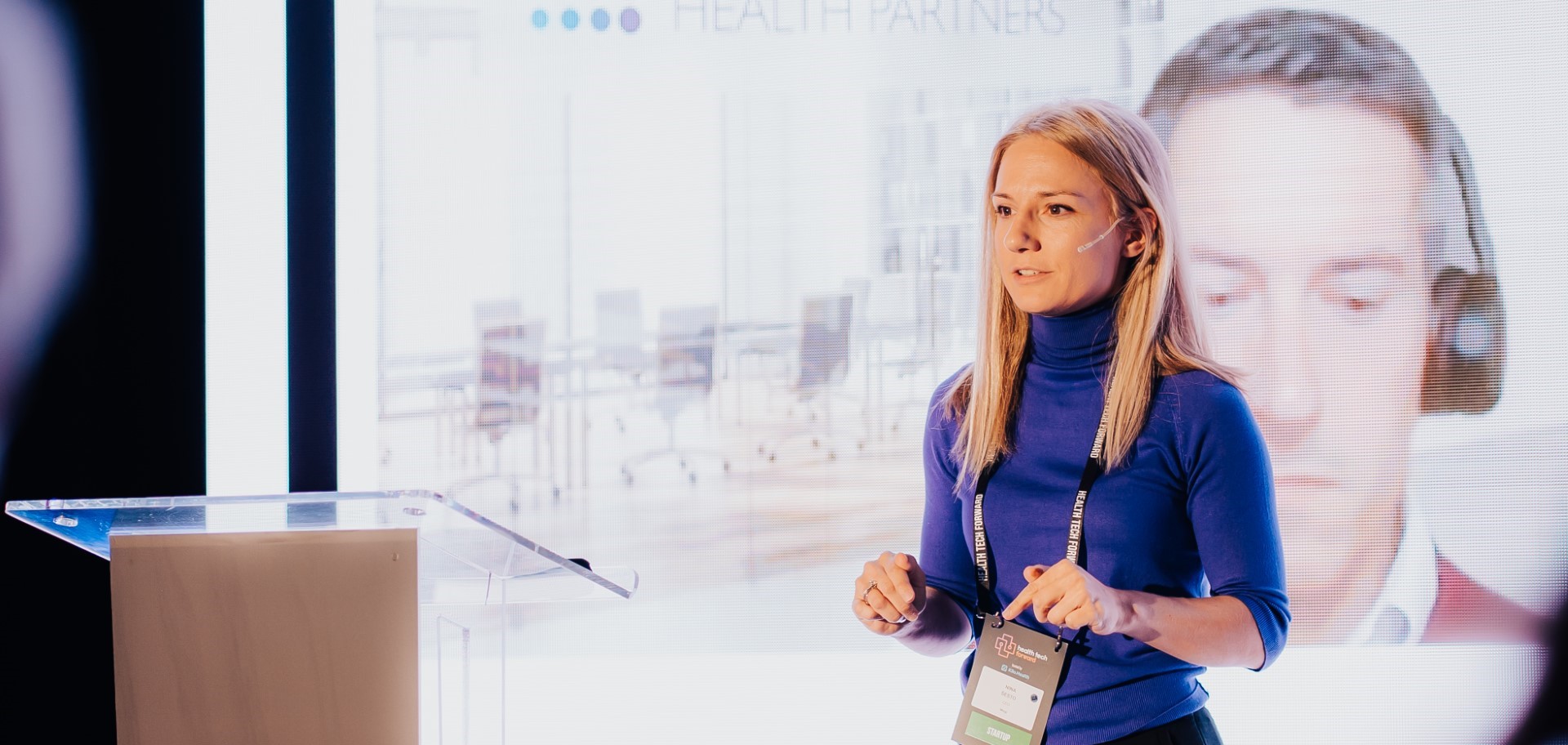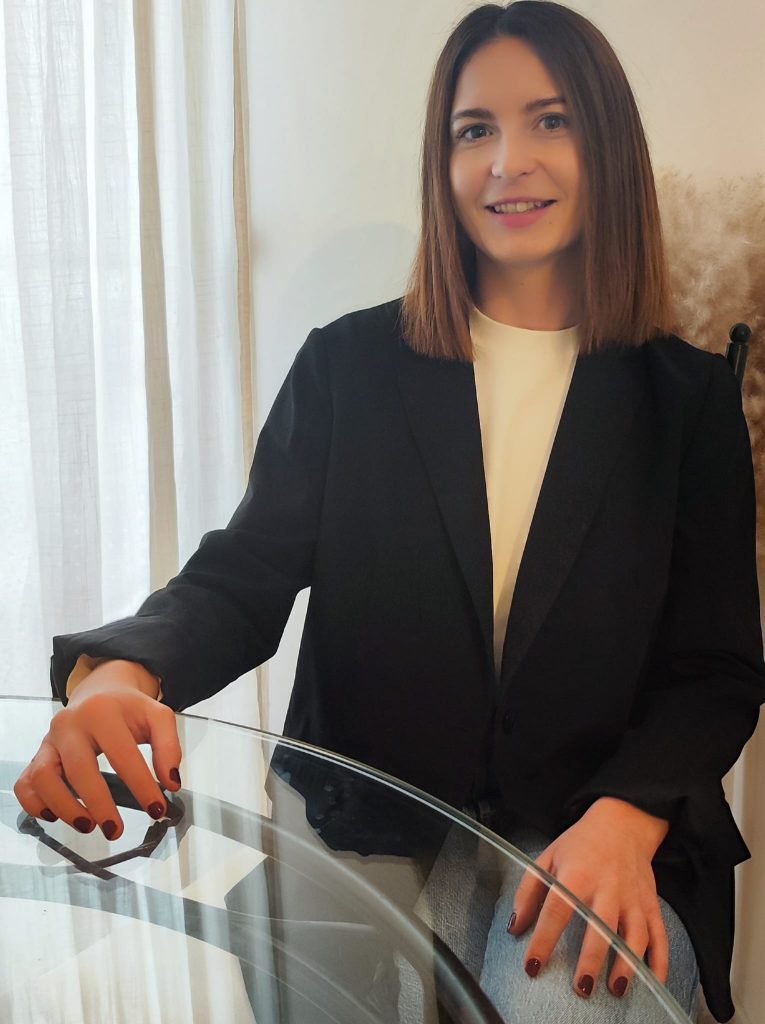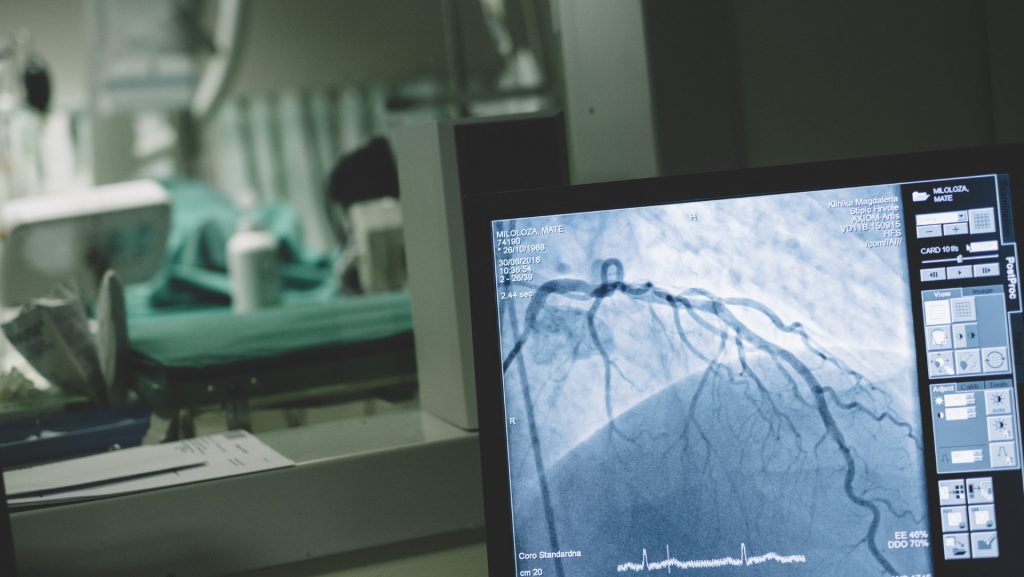Entrepreneurs of the week: Nina Sesto (MBA.16) and Ines Knežević (MBA.18) help cure your heart

Nina Sesto (MBA.16) and Ines Knežević (MBA.18) are implementing a cardio health medical assistant called MEGI. This AI-driven scalable solution could help improve the patient’s journey while relieving doctors from an immense burden.
Having her heart in the right place, Nina Sesto’s professional ambitions have a lot to do with her personal background. Born in a dynasty of cardiologists, the Croatian entrepreneur recently launched MEGI Health, a chatbot using AI to assist patients suffering from cardiovascular conditions.
Back in 1997, her family founded the Magdalena University Clinic, a prestigious hospital for cardiovascular surgery and cardiology. The first in her country. “My father was a pioneer in conventional cardiology and opened this private cardiovascular center 30 years ago,” she explains.

On the other hand is Ines Knežević, another alumna who co-founded the company. Originally from Sarajevo, she, too, has dealt with the suffering of such disease, but her perspective is one of a patient. During her high school years, at age 15, she had to walk her father to the hospital as he was grappling with severe chest pain caused by a chronic heart condition.
“This marked the beginning of a series of hospitalizations, countless treatments, post-hospitalization depression, three heart attacks, and a final routine check-up during which he eventually passed away,’’ Ines explains. “This experience prompted profound questions about what constitutes a quality of life for a human being and the significance of dignity in one’s existence.”
Together, the two women are now working toward improving the patient’s journey by connecting them to their hospitals. “What we can do in a hospital represents only a small fraction of what the patient is going to experience,” says Nina Sesto. “When battling a cardiovascular chronic disease, the majority of the time, patients are on their own. This is where the care path basically cracks.”

Their conversational bot, MEGI, is an AI that will chat and monitor the patients’ health. To connect with them, MEGI, which is not an app, communicates on every channel possible, from Messenger to email. An overwhelming majority of users connect with MEGI on WhatsApp.
MEGI will collect valuable data from patients, encompassing not only blood pressure and cholesterol but also behavioral indicators. This AI-powered bot will offer continuous feedback to patients, maintain 24/7 availability for contact, and generate detailed graphs and information for both the patient and their doctor. This approach enables doctors to easily track patient health, benefiting from real-time feedback and comprehensive data analysis
Its creators added ‘This solution is scalable and designed to save doctors time without imposing additional burdens. MEGI is a blend of statistical methods and AI models, providing the base for the predictability essential in healthcare by leveraging 25 years of longitudinal patient data.‘
Surprising? Cutting-edge? MEGI is definitely a revealing example of how tech can be integrated in modern medicine practices. Nina Sesto was, indeed, always on the innovation side of her discipline. The entrepreneur graduated in molecular biology from University of Zagreb in 2008 and pursued a PHD in life science at Paris Cité University, leading fundamental research on RNA mediated gene expression and CRISPR (repetitive DNA sequences) at the prestigious Pasteur Institute in Paris.
But a need to take a leap toward implementation led her to HEC. “There is a huge gap in what is happening in labs and what’s happening in real life,” she says. Entering her MBA, her heart was set on bringing these worlds together.

In 2015, HEC and Wharton School had a joint program. An occasion for her to embark on a memorable journey. Hired by the Dana-Farber Cancer Research Institute, Nina Sesto and a small team of students were sent to Sub-Saharan Africa, in Senegal and Ghana, to seek solutions in implementing cancer research and treatment.
“My role was to investigate how we can use advanced technologies to help those countries,” she explains. In Africa, she realized digital solutions were not sustainable nor were they scalable because physicians were lacking on the field. That’s when she decided to switch from molecular biology to digital health. “I thought we could also use AI to open certain parts of that telemedicine health space and help scale the product.”
Nina Sesto went back to her country with the idea of transforming Magdalena Clinic into a lab with access to 25,000 patients and numerous doctors. “We can use this hospital to put all the stakeholders in one place to build the best products. We need doctors, patients, nurses, psychologists, the best IT and AI experts.” Last year, MEGI emerged from this idea of gathering tech and health experts in one place. Nina’s father, a trailblazer in cardiology during the 1980s, now incorporates MEGI data into his daily work.
At HEC Paris, Nina Sesto used to hang out with Ines Knežević. Born in Bosnia-Herzegovina, Ines left a country devastated by war at age 18. Seeking new opportunities abroad, she moved to Slovenia, where she graduated in business economics from the University of Ljubljana. She then transitioned to Paris, where she has been living for 12 years now. Occupying various positions, Ines led a brilliant career, started working at L’Oréal in marketing during her MBA at HEC, was a special educator for the French Army and taught marketing, communication, and brand management at Neoma Business School.
She set foot into the healthcare world two years ago, working at a start-up owned by a fellow alumnus from the same batch, Soter Analytics, an AI preventing musculoskeletal injuries. So when she crossed paths with Nina again, Ines could only relate to the project, her family history in mind. “For me it was just a no-brainer to join the company.”
Since its creation, over 5,000 patients have tested MEGI and the solution is implemented in 37 GP practices and cardiology clinics in Croatia. “Patients are using Megi 27 days a month”, says Nina, boasting very encouraging figures. “Besides healthcare providers we partner with pharmaceutical companies to enhance understanding of CVD medications and support patient-focused initiatives.”
As stated by the start-up, over 7 million people are living with heart and circulatory diseases in the UK alone. Despite global finance entering a rather tense period, and a “big level of bias” toward female entrepreneurs when it comes to raising funds, Nina and Ines have a big opportunity to develop their business in the UK, where the cost of cardiovascular diseases reaches more than 19 billion pounds each year as well as to relieve doctors and facilities from “an immense burden.”

Published by Estel Plagué

